
Meet the Maker: artist, Emma Bass
Artist and photographer Emma Bass creates lush and colourful floral portraits.
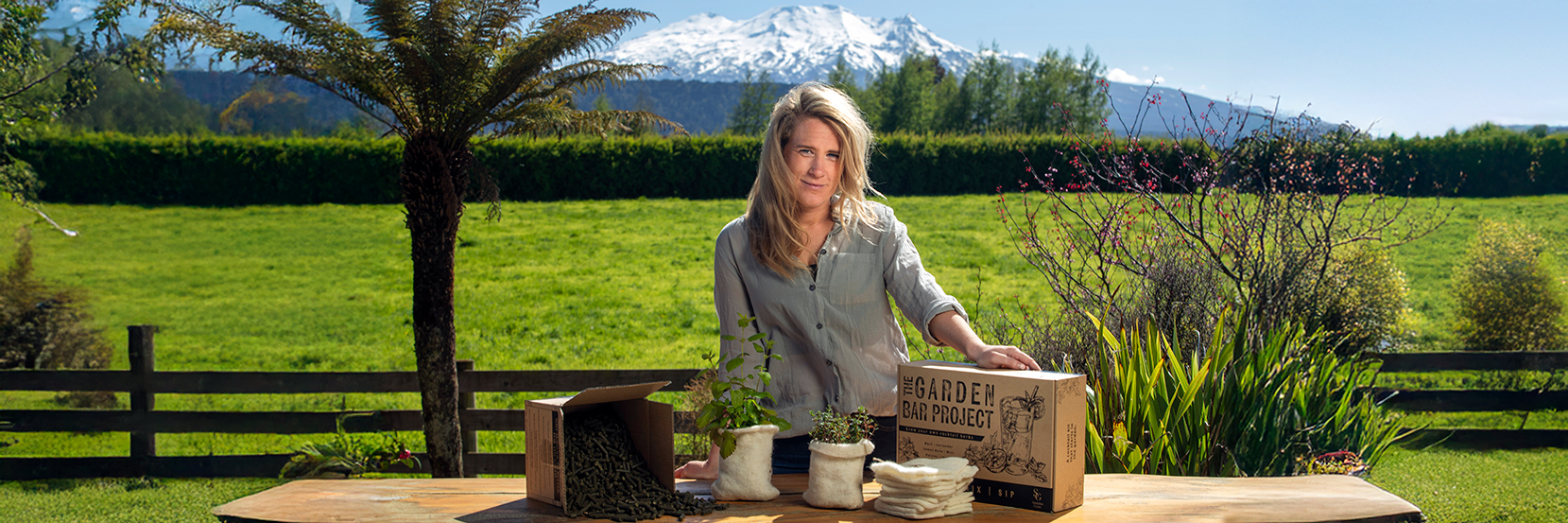
We chat with Rita Hammond, the Kiwi creator of sustainable woollen garden accessories.
Growing nutritious food has always been second nature to Rita Hammond. As a young girl she enjoyed helping her mum and grandmother in their veggie patches, and when she had children of her own, pottering in the garden became a favourite daily activity with them, too.
The only thing she didn’t enjoy about growing her own produce was the amount of waste created.
“We’d buy plants in plastic pots, seaweed fertiliser in a plastic tub and potting mix in plastic bags, and then not be able to recycle them,” says Rita, who together with her husband Dave owns a sheep and beef farm in Ohakune, at the base of Mount Ruapehu. “Everything for gardening just seemed to be in plastic.”
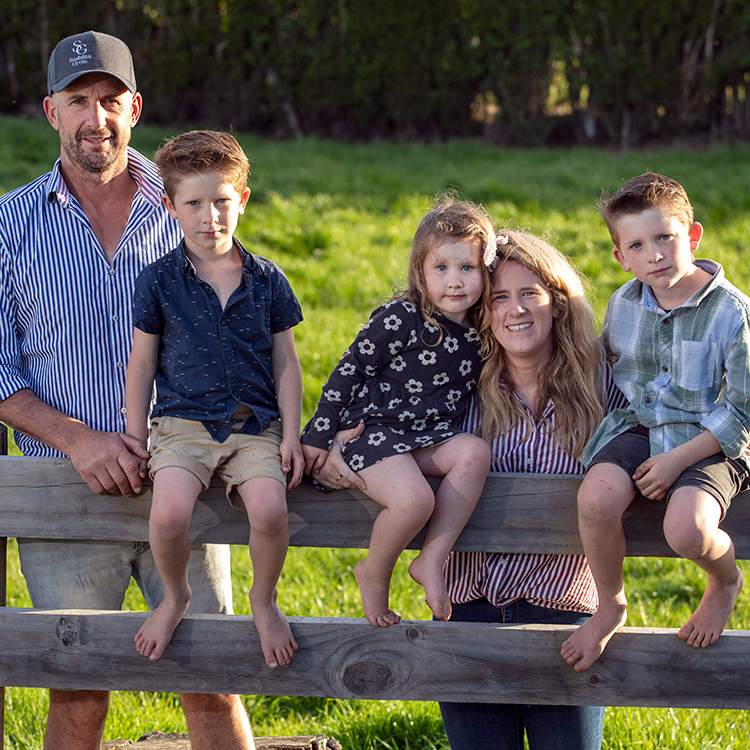
To reduce waste, she’d use sheep dags from shearing – parts of the wool that would otherwise go to waste as they often have manure attached.
“I’d use it as a weed suppressant and it made a great fertiliser too, putting nutrients into the soil. Then I had a lightbulb moment that other people might like to use it as well.
The busy mum of three children under the age of three researched the best way to achieve her goal. She opted to form the dags into pellets and, having found a manufacturer with the capability, she set about perfecting the mixture in terms of moisture levels, fibre lengths, and ratio of wool to manure. Within a month of coming up with the concept for Sustaina Grow, she’d had the first batch produced, created packaging and labels, and built a website – having taught herself the necessary design skills.
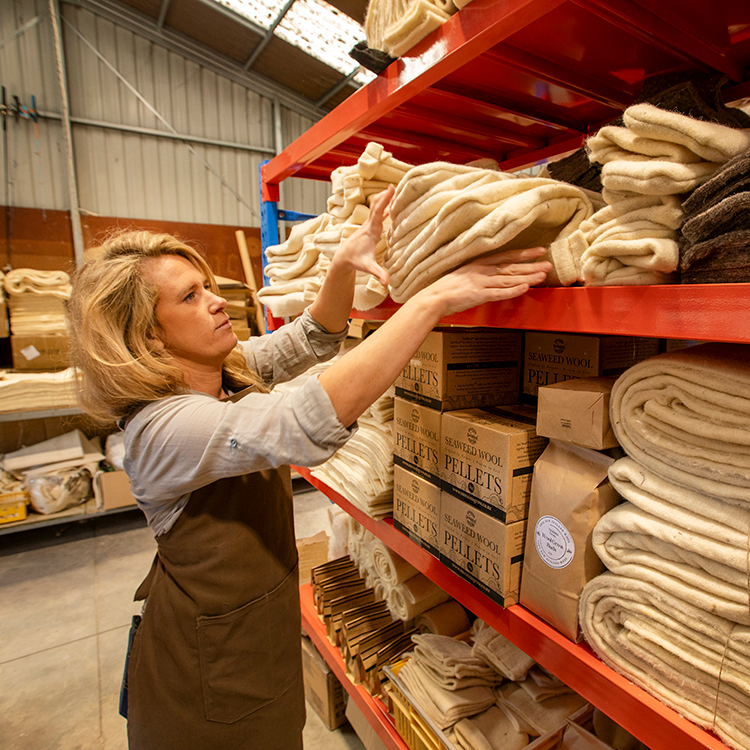
“It was a completely self-funded start up,” she says. “Initially Sustaina Grow was operating from our lounge. I didn’t know anything about marketing but would post on social media about how we were using the pellets, and it grew from there.
“When I got my first order from someone I didn’t know – which took five months – it was so exciting!”
Soon afterwards, Rita introduced a new product, a mulch matting ‘woolly blanket’ to protect seedlings from wind and frost, help with soil moisture retention, and supress weeds, all while feeding plants as it breaks down as a slow-release fertiliser.
“It saves people time weeding and eliminates the need for sprays,” says Rita. “It’s become popular with horticulturalists, including in vineyards, and with builders as ground cover to reduce dirt transfer across site.”
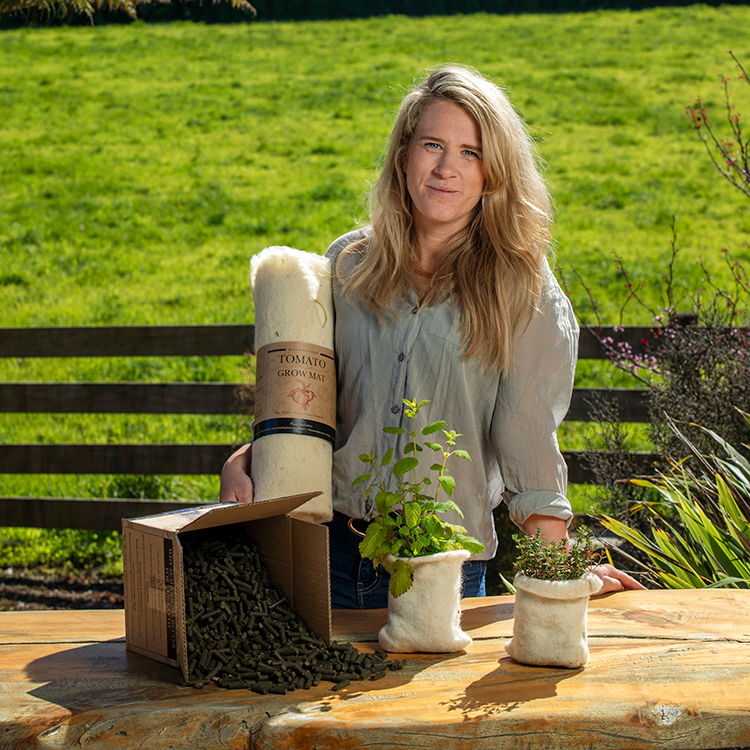
Within a year of starting Sustaina Grow she’d stepped back from her job as a primary school teacher, making the business her full-time role, and adding other new products.
Especially popular with customers are woollen plant pots, sewn from the woollen matting. Seeds and seedlings can then be directly planted in the soil, still nestled inside the pot to protect the roots, which then grow through the wool.
“Not only are they not plastic, but they also buy time because they dry out a lot less.”
Although originally the wool supplies came from their own flock, demand has expanded so much it’s now also sourced from 200 other farms across the North Island.
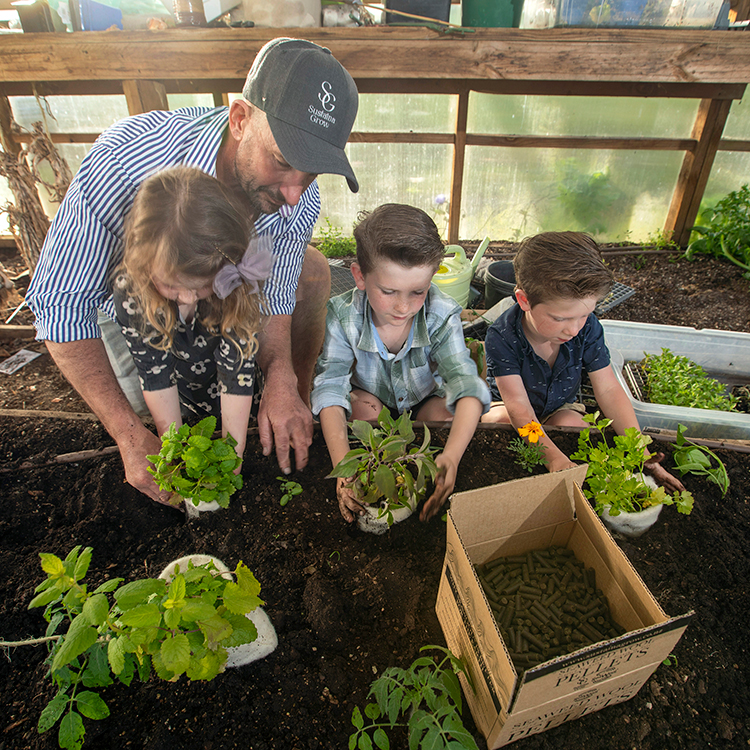
More recently, Rita added SeaWool, combining the original pellet fertisiliser with seaweed.
The range now also includes a cocktail herb growing kit, hanging basket liners, garden kneelers, tree planting kits and grow packs that contain woollen matting, seeds and fertiliser.
“The grow packs are very much a ‘paint-by-numbers’ system. We take the guesswork out of gardening and only sell those in the season they're meant to be grown, so we are setting people up for success.”
Three years after starting out, Rita now has six others on her team including two seamstresses and has expanded into a four-bay workshop. Her husband Dave – who runs their 164-acre farm, is also a fencing contractor and has a firewood business – has been instrumental in the company’s growth, she says.
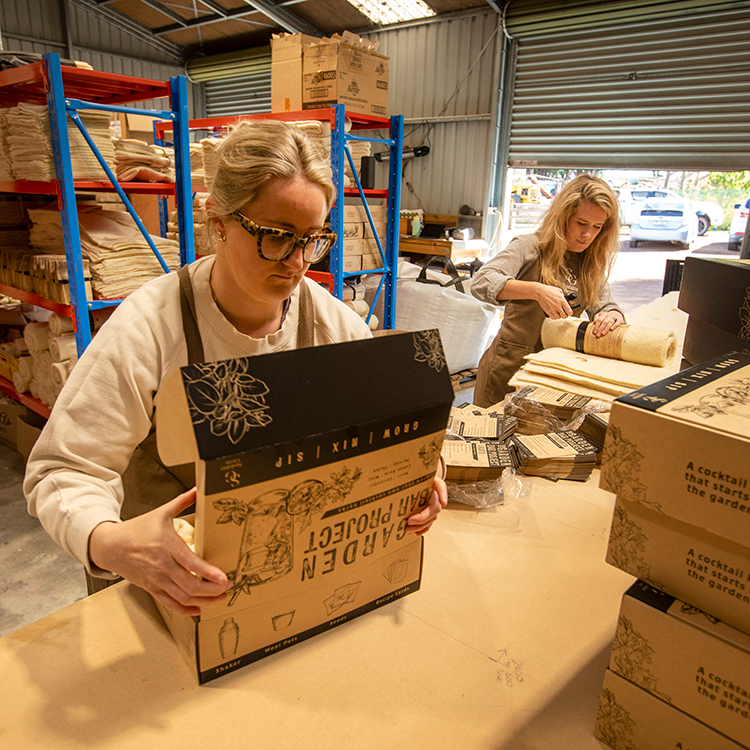
“He’s developed things, for example he designed and engineered custom wool presses to help vacuum shrink and package lengths of mulch for freight efficiency, and cutting presses to pre-punch holes in the wool.”
Their three children are involved too, helping in the workshop with organising the wool pots ready for dispatch.
“We tend to think growing our own food is a sustainable thing to do, but it's easy to turn a blind eye to the plastic you're using. Reducing its use is one of our three core values. If we can do that while helping others to grow their own food and raise the value of wool as the super fibre it is, then it’s a win-win situation!”
Be in to win!
AA Directions has three packs of Sustaina Grow products valued at $200 to give away!
This story is from the Summer 2025 issue of AA Directions magazine.